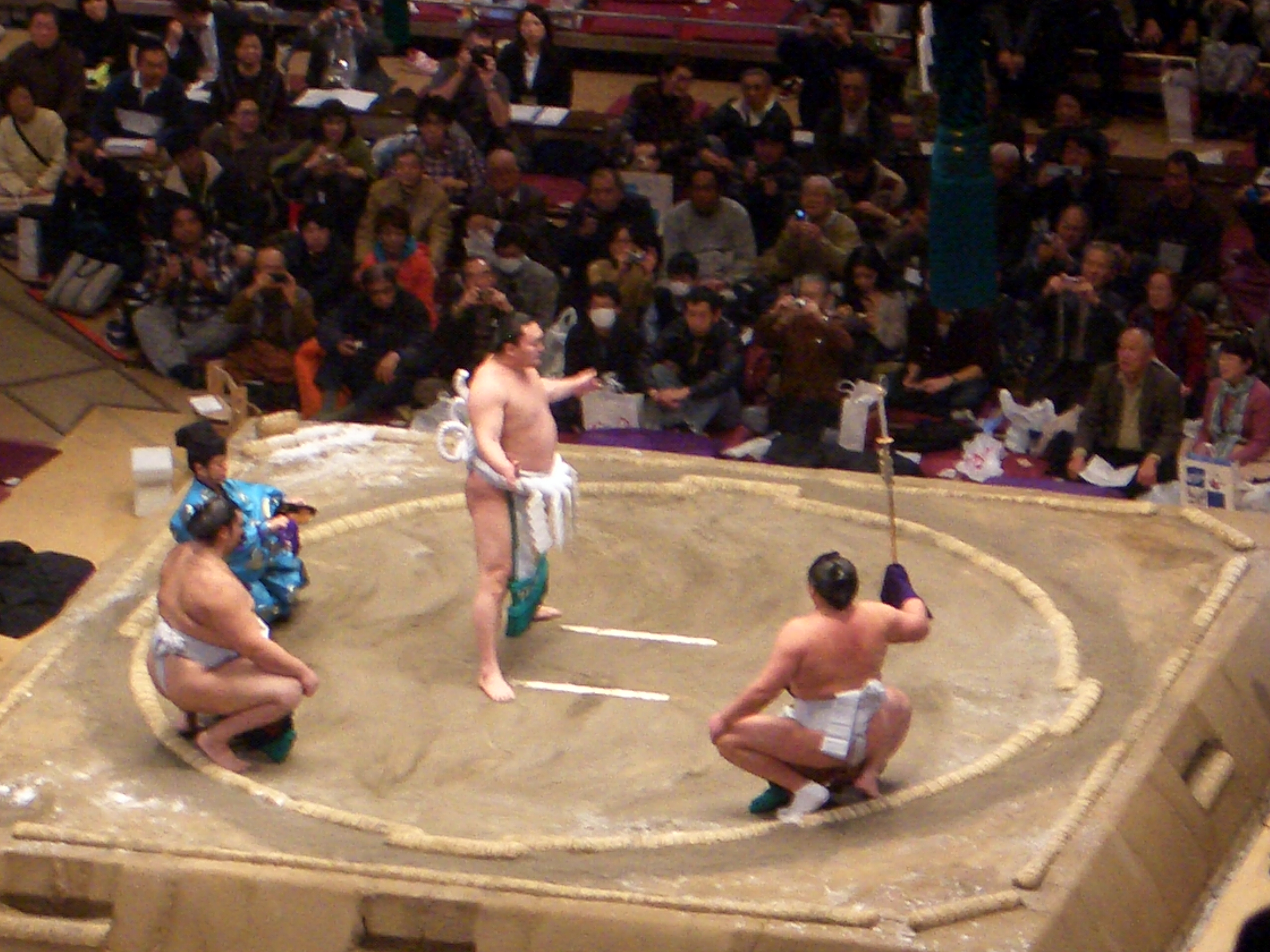If rikishis are polite and respectful to sumo, Japanese fans are happy and self-identity develops.

You may know that sumo is national game of Japan, but you would not know why it is so. Going out to see sumo helps to find out an answer. It also offers an opportunity to understand Japanese attitude towards foreigners.
There was the 37th Grand Sumo Tournament on February 10th at Kokugikan in Tokyo. Unlike regular matches, results of this tournament don’t count towards rikishis’ (wrestlers) ranks. Its main aim is to make sumo popular. The place played an important role for sumo to become Japan’s national game in the Meiji era when Japan was rapidly turning into a modern society. Kokugi literally means national game.
At the centre of Kokugikan is dohyo (the sumo ring) (pictured below). It distinguishes Japanese sumo from other countries’. The sumo ring used to be square in Japan, but it became as it is in the Edo era because one prominent family established itself as a leader in sumo, whose ring was round. One way to win the game is to get an opponent out of the ring. So Japanese rikishis push each other, which is a peculiar way of playing. Japanese fans become excited when one rikishi pushes back hard against the other on the brink of defeat.

Behave yourself on dohyo.
There are many ambitious foreign rikishis today from places such as Mongol and Eastern Europe. But, in the opposite to the rise of foreign rikishis, Japanese ones don’t become Yokozuna (champion) for a long time. The disappearance of local heroes resulted in the decrease of local sumo fans.
But that does not mean the loss of local culture. Politeness is important. On the ring riskishis greet in a unique way to show respects to each other before the game, which is like a ritual. Unlike modern sports, sumo is about self-development rather than results. To grow their minds, rikishis need others. In other words, it is spiritual. Even when one rikishi wins, he is not supposed to show his feelings because it is disrespectful to the other. Kakuryu, who won the tournament, is a Mongolian, but he showed that he understood this code of moral conduct.
If rikishis are polite and respectful to sumo, Japanese fans don’t care where they are from. This is striking as racism is still a problem in European football: there is no violence in Kokugikan; nor is racial abuse either; fans say their favourite rikishis’ names loudly during the game; and some of them enjoy talking with foreign tourists. Along with men, there are many women and children, too (Although there is still a nasty sexual discrimination in sumo because of religious matters, women are historically important in developing the game).
It seems that sumo grows Japanese identity among fans. Seeing it makes them feel who they are. After seeing an exciting match, a local man said, “after all, I knew I like sumo”. Welcome to Japan.

Ryo Kubota is a staff writer at Transpheric Management in Tokyo as well as a freelance writer. He has covered Sports for the Nippon Newspaper Company in Tokyo and teaches at a private tutoring school in Iruma, Japan. Having studied in both Tokyo and England in the areas of sociology, he has a keen interest in the world at large.








